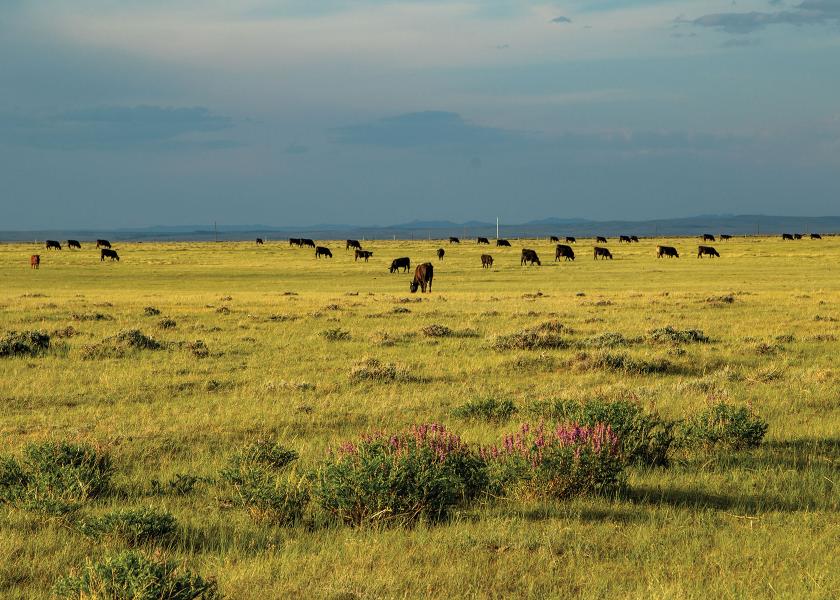Application of G x E to Production Can Move U.S. Beef to a Climate Neutral

“Can we manage G x E across diverse environments and produce competitive acceptable end-product to fit the environment that we’re in?” asked Milt Thomas, Colorado State University professor and John E. Rouse chair of beef cattle breeding and genetics. Thomas gave his presentation titled “Harnessing Genetic x Environmental Interactions – Are They Important in Production” during the Beef Improvement Federation (BIF) Symposium June 3 in Las Cruces, New Mexico.
Thomas explained the concept of genetic x environment interaction in beef production systems and understanding challenges of operations to improve selection decisions that can help the U.S. beef industry reach the ultimate goal of climate neutrality.
Gene x Environment Interaction
Understanding gene x environment interaction (G x E) is important for beef production as some animals perform better in an environment than others. Thomas discussed a research project which found cattle possess a “home court” advantage when it comes to production, and it is essential to place your animals in an environment in which they can reach their full genetic potential. G x E is about fitting the most appropriate cattle to the resources of a production system and more. When analyzing G x E in a production operation, a producer should also consider the various production systems that can exist within their environment.
Achieving Climate Neutrality with G x E
Every beef production operation faces unique genetic and environmental challenges. Producers need to select the “best-fit” type of cattle based on the environmental factors of temperature, humidity, annual rainfall, drought and altitude. Selecting cattle that are best suited for your environment will reduce the climate impact of your herd as the animals can better utilize the natural resources available to them. Increasing the size of the average cow with highly heritable traits has allowed a decrease in national cow herd size, allowing the industry to move toward climate neutrality.
“It is important to understand G x E interactions to select cattle that are adapted and fit specific environments and production systems. The ability to detect G x E has increased with genomic approaches to provide the opportunity to develop genetic improvement tools for adaptability,” Thomas explained.
To watch Thomas’ full presentation, visit https://youtu.be/6vhjy396h54. For more information about this year’s Symposium and the Beef Improvement Federation, including additional presentations and award winners, visit BIFSymposium.com.







